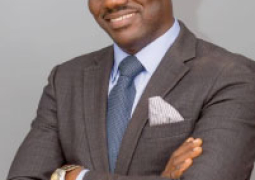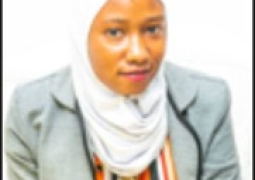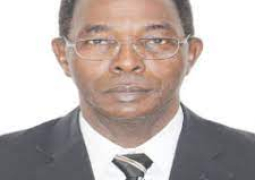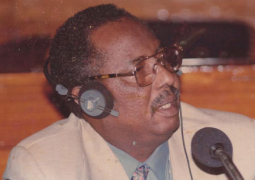When the final draft of the Disability Bill was passed by the National Assembly and assented to by the President there were jubilation in many quarters. It seemed as if our strategic rocket had successfully landed on the moon. But infect, in my opinion the rocket has not even left the ground yet.
A lot of work is yet to be carried out if the lives of persons with disabilities are to transform. The Disability law is now in place, but does the law defines goals and objectives which the government wishes to achieve for its citizens with disabilities in a period of time? The government’s plans to improve our wellbeing need to be shown in a comprehensive integrated national disability policy with which all sectorial policies such as the Education policy and social protection must align. So far there is no such policy in place.
In the recently established disability law there appears to be a lot of divergence from the UN Convention on the rights of Persons with Disabilities which was ratified together with its optional protocol by the government in in the year 2015. One prominent divergence is the transformation and down grading of the originally recommended Disability Council to an advisory committee for the Ministry of Women, Children, and Social welfare. The council, according to the original draft of the bill was supposed to be a higher authority which can have audience with the President and the National assembly. It was to be tasked with governing, administrative, and legislative issues.
Another divergence from the CRPD is the constitution of the advisory Committee. Only 4 persons with disabilities are recommended to participate in the committee, and no regard is given to the need for representation of the various disability groups which, I think, is necessary in the committee as there is not likely to be specialists on socio-cultural issues concerning disability. Nearly all the other community members are civil servants from various government ministries and departments whose involvement is considered vital to successful implementation. Certainly, this strategy is helpful. However, many of these departments and ministries can play their roles in disability inclusive programs without becoming votingmembers of this committee.
In my opinion each of such government ministries and departments need only to establish their own disability office which could liaise with the committee. The committee should consist of the following which is in line with the CRPD:-
- Adequate number of persons with disabilities representing the various kinds of disability groups such as visual disability, hearing disability, albinism, wheelchair users, amputees or prosthesis and orthotics users, intellectual disability, psychological disability
- Human rights and Disability law experts,
- Medical experts, Experts on Social approach to disability, linguists, orthopedic and assistive device experts.
Another divergence from CRPD is that enforcing and monitoring implementation of policy and law at the grassroots level is to be left in the hands of village heads, and village development committees who are expected to be voluntarily reporting violation of the disability law which happens in their localities. We must not forget that we cannot compel volunteers to act. In my opinion, civil servants such as Social workers of the department of Social welfare, school teachers, medical workers, and the law enforcement officers shouldall be entrusted with the duty. However, in order for their work to be effective, these civil servants and community police, need to undergo effective disability training. They need to interact directly with persons with disabilities. This is necessary especially when seeking firsthand information, giving instructions or advice. For instance they need knowledge of, at least, basic sign language for effective interaction with people with hearing loss.
Finally, it should be clear that the government is the first duty bearer when it comes to disability issues, and so it cannot excuses itself from responsibility. No country can be proud of its performance in the human rights realization for its citizens when its community of persons with disabilities are languishing in extreme poverty, lack consciousness of the world surrounding them, andare unable to access opportunities which other members of the society are enjoying.
There is no hope for Deaf people, and no control over the violations of their human rights is possible if the government continue to ignore the significance of sign language in Deaf development, andcontinue to assume that its development plans are disability inclusive approaches to development.
GADHOH alone is carrying the burden of establishing and promoting sign language in the Gambia, and often provide services to the government and other partners concerned with Deaf issues. GADHOH facilitate people communication with Deaf people who are pursuing education, health care, employment, migrations, public information, welfare assistance, and participation in community / family activities, recreation and sports.etc. However, GADHOH is a national association, set up and run by deaf and hard of hearing people in the Gambia. A good majority of our ordinary members are still unemployed and could not afford any significant financial contribution to implementation of our planned activities.This situation compels us to rely, to a great extent, on foreign donations.
In conclusion, we look forward to immediate amendments to the newly established disability law. We also look forward to government’s immediate establishment of an integrated national disability policy, and have all sectorial policies aligned with it.





